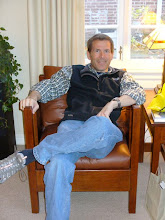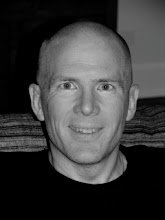Memorial Day has always before been a parking meter holiday for me. The banks are closed, there is no mail, and I usually choose not to go into the office even when I have work demands.
We are not a military family. My Kimball grandfather registered with the Selective Service when it was created in 1917 after the U.S. entered the war in Europe. He was found perfectly fit, but was not called up and armistice was signed the next year. My uncles Spencer, Grant and Andrew all served in World War II, all in the Navy on the Pacific front. They all came home. My father was too young for World War II, and would have been exempt in any event because of his polio disability.
I’m sure there are other relatives who served in one war or another. But there is nobody else whom I know well enough to have heard stories from or about, and I'm not aware of any deaths in war, among family members.
I grew up with the war in Vietnam always present. Just today I checked the dates (using Wikipedia and subject to whatever flaws the “Vietnam War” entry contains), and confirmed this.
I was born in 1955. Vietnam was partitioned in 1954, in what was supposed to be a temporary partition pending national elections in July 1956, except that the U.S. never agreed and the president of South Vietnam, Ngo Dinh Diem, declined to hold elections. Instead, in 1955, Diem launched a “Denounce the Communists” campaign, and in October declared the new Republic of Vietnam.
I was four years old in 1959 when North Vietnam’s Central Committee issued a secret resolution authorizing an armed struggle, and the southern Viet Minh began large-scale operations against the South Vietnamese military.
I was eight years old in 1963 when some policy makers in Washington concluded that Diem was incapable of defeating the communists and might even make a deal with Ho Chi Minh. Apparently the CIA was in contact with generals planning to remove Diem and told them that the United States would support such a move. President Diem was overthrown and executed, along with his brother, on November 2, 1963.
President John F. Kennedy was assassinated three weeks later, on November 22, 1963.
I was ten years old when U.S. involvement in Vietnam War was escalated, starting officially on the morning of January 31, 1965, when orders were cut and issued to mobilize the 18th TAC Fighter Squadron from Okinawa to Danang.
I was sixteen when the wind-down began, when the U.S. troop count was reduced to 196,700.
I was nearly eighteen, a senior in High School, when Nixon announced the suspension of offensive action against North Vietnam and a cease-fire was declared across North and South Vietnam.
My birthdate was assigned number 11 in the draft lottery. Had there been an active draft in 1973 I almost certainly would have been drafted. However, for the first time in my young memory, in 1973 nobody was drafted.
From 1956 to 1975, essentially the first twenty years of my life, almost 3 million Americans served in Vietnam and at least 58,193 Americans were killed in Vietnam (other counts put the number at 58,209 or 58,217). (I'm thinking of men almost exclusively, but of the casualties 8 were women.) Vietnamese military dead on both sides exceeded 1.3 million, and civilian deaths are estimated at 2 million.
We visited Tom and Michael last weekend, stopping for an evening and a morning on the way up to Northfield, Minnesota, to see Chase at school. Every time I see Tom I’m aware that there is a part of him I can’t know or reach. That part served in Vietnam. It was a long time ago. We are getting to be old(er) men now. But surprisingly there is an always present “I was there” mystery and depth to Tom. I have the same feeling with Doug Braithwaite, with whom I’ve discussed this directly. Doug tells me that there are a few stories he can tell, more that he can share with and will only make sense to other men who were there, and some that he will never tell anywhere.
But today I’ve been thinking more about all those who did not return except as a body in a bag or a casket. They would have been the men just older than me. They would have made my world a livelier, better, richer place. But they didn’t come back, and I never knew them.
The Vietnam war was a mistake in sixteen different ways. So is the current action in Iraq, whatever it is rightly called. But the young men who went to war are not to blame for the mistakes of the leaders. Those young men serve where they are called. I wish they all had come home. I wish I had known them. I mourn them, and honor them.
There’s no great mystery about why this Memorial Day for me, and not any of the 51 Memorial Days that came before. This Memorial Day I am alive, after learning that I had cancer that was fatal if not treated, and for which the treatment was only a little less extreme than the disease. A year ago today I was 11 days post surgery and still in very intense care. Linda celebrates May 15 or May 16 as a new “birth” day for me. However, I slept pretty much all of May 15 in an operating room, I was barely conscious on the 16th, and for some days after I wasn’t sure I would survive the night. It was more like Memorial Day one year ago today when I started to believe that I might live another day.
I am glad to be alive. I celebrate every single day, every hour of every day. And yet by the time I was diagnosed I had three adult children and a partner in Linda with whom I had already made a life together for nearly thirty years. I had had three significant careers and was working on the fourth. I had lived well and long. Morbid as it sounds, I had probably done all that was needed for me to do.
Those young men who went to Europe and to the Pacific and to Korea and to Vietnam, and now to Iraq, but didn’t come home, those young men did not get to live out the full measure of their lives. They are gone, and we are the lesser for it. I remember them today.



